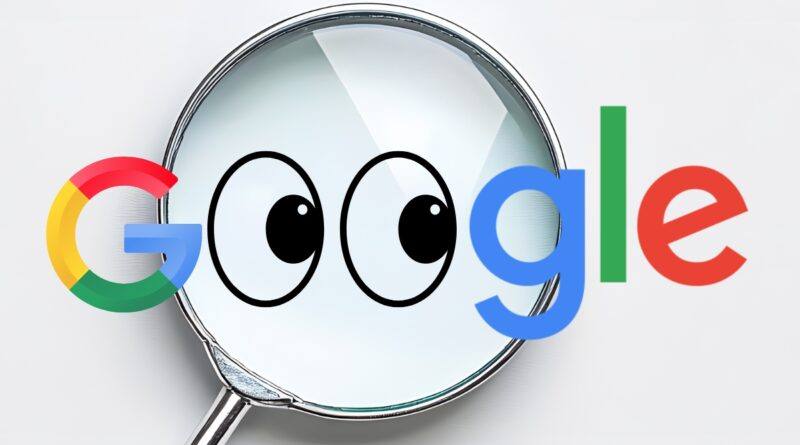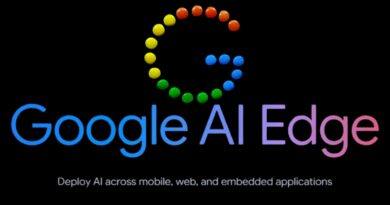The Most Powerful Digital Mind That Knows Everything About You
By WFY Bureau Desk
Inside Google: Power, Privacy and the Price of Convenience
In the modern world, “to Google” is not just a verb; it’s a lifestyle. From searching recipes to managing business calendars, Google has become the invisible operating system behind much of our digital lives. For millions, it is the first touchpoint of the internet and, for some, the only one. But behind its clean interface lies one of the most sophisticated data ecosystems ever built—a system so deeply embedded in our everyday lives that most people do not even realise how much it watches, learns, and remembers.
This article delves deep into how Google works, what it offers, what it quietly takes in return, and how users can attempt to regain some control.
The Google Engine: More Than a Search Bar
Google began in 1998 as a university research project with a single goal: to organise the world’s information. Today, it is a trillion-dollar tech behemoth that provides services ranging from navigation and email to translation, online shopping, and cloud storage.
At its heart, Google is still a search engine. But behind each search is a complex algorithm that uses hundreds of ranking signals: page relevance, backlink quality, site speed, mobile compatibility, domain authority, user intent, and more. These are processed by Google’s proprietary artificial intelligence systems, which rank results in microseconds.
What most people don’t realise is that the search results they see are not entirely neutral. They are subtly tailored—based on previous searches, location, device history, account behaviour, and even email content. This personalisation is one of Google’s strengths and also its greatest criticism.
The Ecosystem Web: One Login, Countless Touchpoints
Google’s success lies not just in how it helps users find information, but in how seamlessly it integrates across its own products:
- Google Search tracks queries, result clicks, and time spent on websites.
- Gmail automatically scans inboxes for receipts, travel details, and newsletter engagement.
- YouTube logs every second you watch, pause, skip, or replay.
- Google Maps monitors real-time location, routes taken, frequented places, and reviews.
- Google Photos uses facial recognition and geotagging to organise memories.
- Chrome records browsing activity even when you’re not signed in.
- Android devices act as 24/7 sensors that report back app usage, device diagnostics, and location history.
This interconnectedness allows Google to offer exceptional convenience. Auto-filled forms, calendar alerts for flights, targeted recommendations on YouTube, and turn-by-turn directions across the globe all come from this unified intelligence.
But it also means Google holds an unnervingly detailed profile on each user.
Your Digital Reflection: What Google Knows
A visit to myactivity.google.com is often enough to shock the average user. Every Google interaction—whether a Maps route from five years ago or a late-night search for “home remedies for toothache”—is documented here. Scroll long enough, and your entire digital life starts to emerge: your habits, interests, routines, even your moods.
Want to know how Google classifies you? Visit adssettings.google.com. Here, based on your activity, it will list your assumed gender, age range, life events (such as having children or moving house), professional field, and dozens of inferred interests—from music genres to luxury cars.
For users with Location History enabled, the Timeline feature in Google Maps reveals the physical counterpart to your digital identity. Every shop visited, route walked, and restaurant reviewed is charted on a map. It’s not just data—it’s an eerie re-creation of your life’s movement.
How Google Uses This Data
The bulk of Google’s revenue still comes from advertising—particularly through Google Ads and AdSense. Advertisers bid to show their messages to specific audiences, and Google’s data lets them slice user segments with surgical precision.
For example, if someone recently browsed baby strollers, visited parenting blogs, and watched videos on infant sleep cycles, Google can predict with high accuracy that this person is a new parent. Advertisers will then target that individual with baby products, often across YouTube, Gmail, Chrome, and partner websites.
The real power lies not in one service, but in the ability to correlate data across services. Gmail knows your flight details. Maps knows when you leave for the airport. Calendar creates the reminder. Assistant gives you a voice update. And Google Ads shows you hotel offers in your layover city.
The Advantages: What Google Gets Right
Despite growing scrutiny, it’s important to recognise why Google is so popular:
- Speed and Accuracy: No other search engine currently matches Google’s ability to interpret context, synonyms, location, and intent in real time.
- Integration: Google’s ecosystem works like a digital nervous system. Chrome bookmarks sync with Android, Gmail detects bookings, Maps knows where you’re going. The result is unmatched ease.
- Accessibility: Free access to powerful tools like Docs, Sheets, Meet, and Translate has democratised technology for millions worldwide, especially in developing countries.
- Innovation: Google has led breakthroughs in natural language processing, self-driving technology, quantum computing, and health diagnostics. Its Google AI team continues to push global research boundaries.
- Security: Two-factor authentication, malware detection in Gmail, and password alerts in Chrome offer strong baseline protection for users.
The Disadvantages: The Price of “Free”
However, the cost of Google’s convenience is paid in data. And there are valid concerns:
- Surveillance Overreach: Google collects a staggering amount of information—sometimes more than users knowingly provide. The scope goes beyond targeted ads into behavioural analysis and pattern mapping.
- Data Retention: Even when you delete data, Google’s policies allow it to retain some information for “technical and legal reasons,” which users cannot always verify.
- Monopoly Power: With dominant market share in search (over 90%), mobile OS (Android), and browsers (Chrome), critics argue Google stifles innovation and limits user choice.
- Algorithmic Bias: Search results, autocomplete suggestions, and content recommendations are shaped by opaque algorithms. These can sometimes amplify misinformation or skew representation.
- Dependency: Many users and even governments rely heavily on Google infrastructure. If access is cut or manipulated, the consequences can be far-reaching—from elections to disaster response.
Can You Limit What Google Tracks?
Yes—but only to a point.
- Auto-Delete: You can set your web activity, location history, and YouTube data to auto-delete every 3, 18, or 36 months.
- Incognito Isn’t Invisible: It only hides activity from local devices—not from Google servers or websites you visit.
- Google Dashboard: Offers a unified view of what’s stored and where.
- Android Permissions: Apps often ask for more access than needed. Audit them regularly.
- Browser Alternatives: DuckDuckGo and Firefox offer less tracking. Search engines like Brave or Ecosia are rising in popularity.
But no matter what, if you’re logged into a Google account and using its services, some data collection is inevitable.
Is Google a Force for Good—or for Control?
The answer lies somewhere in between. Google has enabled vast connectivity, learning, and productivity. For many small businesses, it has offered a global platform. For students and researchers, it has made knowledge more accessible than ever before.
But its centralisation of power, lack of transparency in algorithmic governance, and immense data bank also present ethical concerns.
Google’s own motto was once “Don’t be evil.” Today, that phrase has been quietly retired from its code of conduct. Whether or not that shift is symbolic, the world is watching more closely.
Look Beyond the Search
Google is not just a tech company—it is a lens through which we experience the internet. Understanding how it works, and what it knows, is no longer optional in a digital age. We owe it to ourselves to be curious not just about what we search, but about who’s watching us search—and why.
Even as we rely on its unmatched tools, we must also question, audit, and control what we share. Because in the end, the real product is not the search result—it is us.
Disclaimer: This article is based on publicly available research and data. It does not quote or reference any individual or organisation directly and has been composed solely for educational and editorial purposes. Readers are encouraged to explore their Google privacy settings and policies to make informed decisions.




